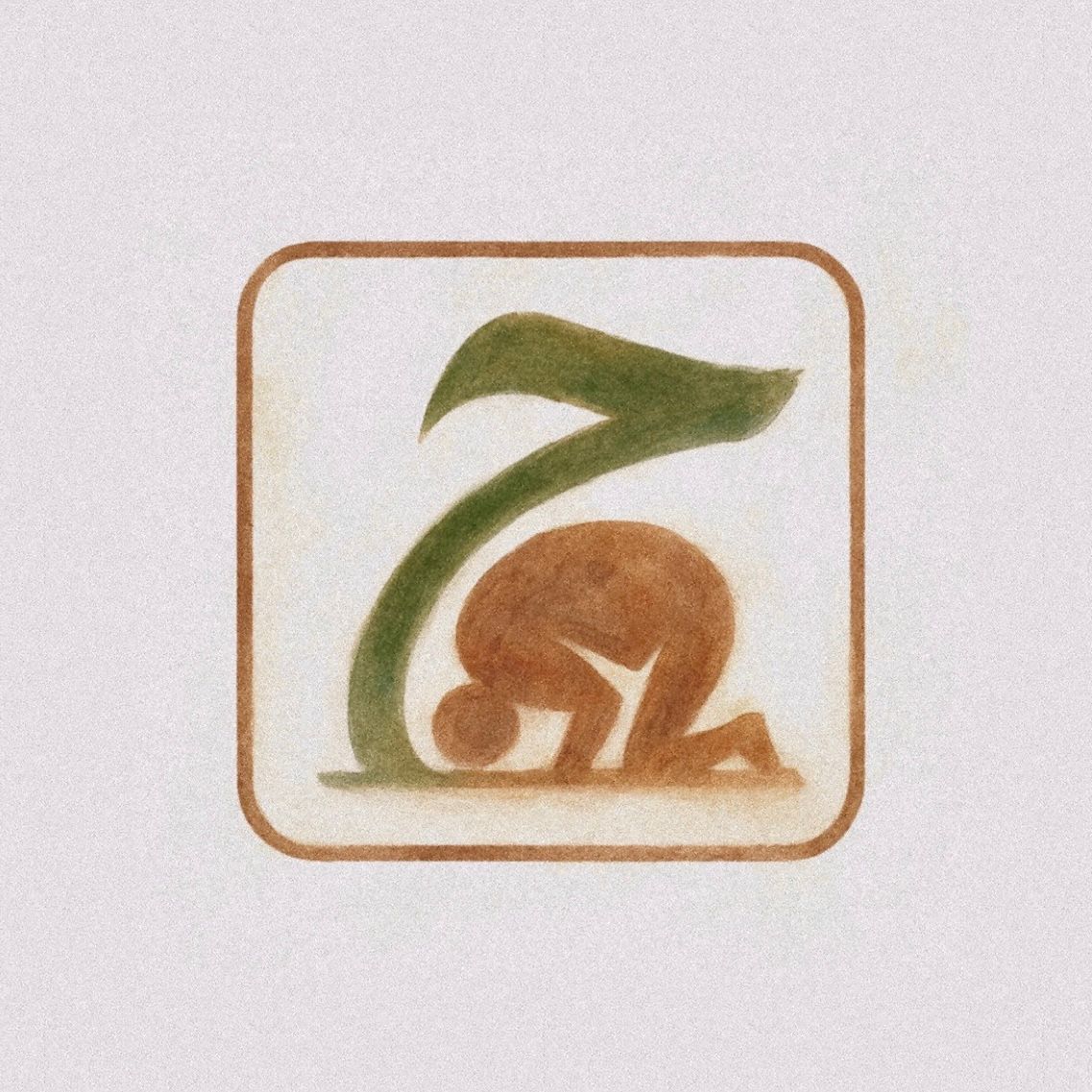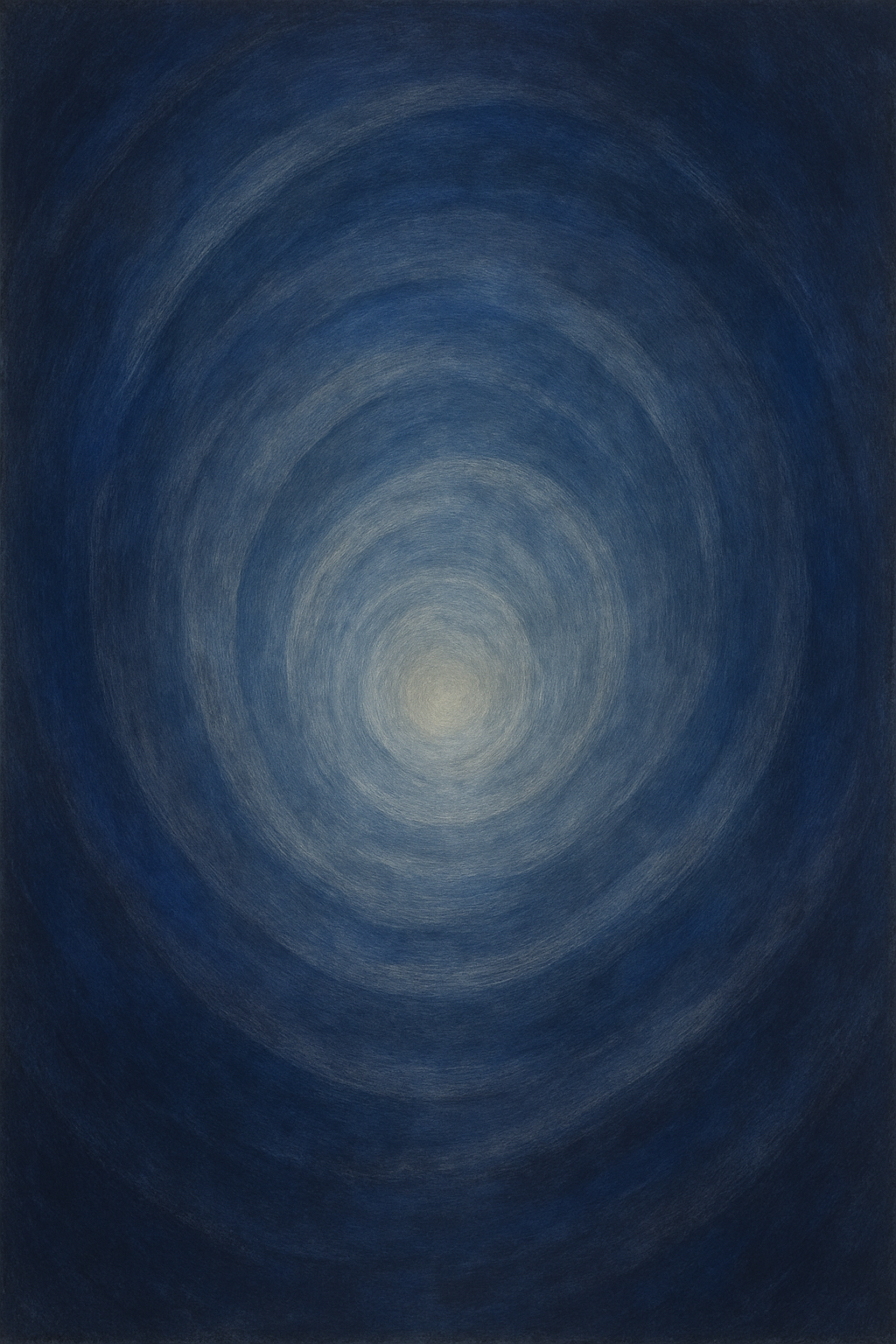there comes a point in the descent when even the fall starts to feel familiar.
you stop flinching. stop fearing.
you wake up days or weeks later with the taste of dust in your mouth,
and you realise – you’ve been gone for a while.
but gone where?
no matter how far you run, you cannot outrun what you were made for.
you were not created to be adrift.
you were not built to survive on distraction.
you were made to return.
and sujūd?
sujūd is not just where you fall.
it is where you find your way back.
we disappear not because we hate Allāh… but because we forgot how much He loves us
most people don’t leave with a slammed door and a hardened heart.
they fade. quietly.
a missed prayer becomes two. then five.
a small sin becomes a habit.
a whisper of guilt turns into an unbearable roar – and instead of turning back, they run further away, hoping the noise will fade with distance.
but it never does.
not because Allāh is punishing you –
but because your soul remembers Him and mourns its separation.
and shame, left unchecked, is shayṭān’s most efficient rope.
he doesn't need to make you defiant – he just needs to make you think you’re disqualified.
"i’ve messed up too badly.”
"i don’t deserve to be forgiven."
"i’ll fix myself first, then I’ll come back to Him."
but that’s the lie.
you don’t come back to Allāh once you’re clean.
you come back to Him so He can purify you.
you don't wait to become perfect.
you crawl with every ounce of regret left in your limbs and say –
"i was never worthy. but You are still my Rabb."
“say, O My servants who have wronged their souls — do not despair of the mercy of Allāh.
indeed, Allāh forgives all sins. indeed, He is the Oft-Forgiving, the Most Merciful.”
(qurʾān 39:53)
you delay your return long enough… it turns into a grave
each missed prayer sharpens the blade of guilt.
each ignored verse adds another layer of dust on your heart.
you tell yourself you’ll start tomorrow, next week, next ramaḍān –
but the more you postpone, the heavier it gets to even think about crawling back.
soon enough, sujūd begins to feel like something for people who haven't ruined things as badly as you have.
you scroll past reminders because they sting.
you avoid masājid because they suffocate.
you delay, and delay – until the delay feels like a sentence you’ve accepted.
but Allāh never placed you in a prison.
you did.
and the key was always in your hand.
and shayṭān? he doesn’t need you to curse Allāh.
he just needs you to keep postponing your apology.
keep saying “soon.”
keep saying “tomorrow.”
keep telling yourself you need more time –
until your time runs out.
“until, when death comes to one of them, he says, ‘my Lord, send me back — so i might do good in what i left behind!’ never. it is only a word he says.”
(qurʾān 23:99–100)
and then, one day… you break
you thought you needed a long list of good deeds.
you thought you needed to be worthy.
but Allāh never said that.
He just said come.
and just like that, your forehead meets the floor again.
no script. no memorised duʿāʾ.
just your breath, your brokenness, and your buried longing
finally spilling into the one position that says it all.
and Allāh meets you there – not like a king forced to entertain a criminal,
but like a Master who was waiting for His lost servant to come home.
“when My servant comes to Me walking, I come to him running.”
(ṣaḥīḥ al-bukhārī)
sujūd becomes home again.
not because you did something grand – but because you stopped pretending and finally admitted:
“i cannot do this without You.”
you’re not too far. you were never too far.
don’t you see?
it was never the distance that kept you out.
it was only the lie that you couldn’t come home.
Allāh is not like the world.
He doesn’t shut the door after the third mistake.
or the thirtieth.
or the three-hundredth.
the gate of tawbah never closes – until your soul does.
and until then, He waits.
not with wrath,
but with open arms.
you can still make it back.
not just to ṣalāh,
but to closeness.
to love.
to safety.
to Him.
“flee to Allāh.”
(qurʾān 51:50)
not to a checklist.
not to people.
not even to a better version of yourself.
to Allāh. Himself.
the world loves to tally.
to measure worth by the number of mistakes, the weight of misdeeds, the gap between you and where you “should” be.
but again, Allāh is not like the world.
He doesn’t keep score the way humans do.
He doesn’t discard what is broken.
He doesn’t say “not again.”
if you return – even after years of rebellion –
even after sins you can’t speak out loud –
even after walking through fire and ash and ruin –
He receives you. not reluctantly. not suspiciously. but lovingly.
“and My mercy encompasses all things.”
(qurʾān 7:156)
sujūd is the only place that can hold both your regret and your revival
you cry.
you confess.
you collapse.
but you also rise.
you rebuild.
you resurrect.
every time your head touches the ground,
it’s as if the soul is saying: “i was Yours all along.”
“even when i forgot You, i never stopped needing You.”
and Allāh – al-Wadūd, ash-Shafī, al-Jabbār –
He responds to that need with nearness.
and in His nearness, you begin to heal in ways you didn’t think were possible.
so don’t just return. return big.
don’t apologise like a criminal afraid of jail.
ask like a servant who knows their Master is al-Karīm, al-Mujīb.
ask for everything.
don’t whisper small, scared duʿāʾs.
don’t say “just enough.”
don’t say “only if You will.”
ask like you know Who you’re asking.
ask for forgiveness. for healing. for softness.
for a ribcage that holds īmān like a lantern.
for a grave that feels like dawn.
for hearts that find sujūd sweet again.
for reunions. for mercy.
for jannah – not just the entrance – but al-firdaws.
not because you earned it, but because you know the One Who gives.
“when you ask Allāh, ask Him for al-firdaws.”
(ṣaḥīḥ al-Bukhārī)
this is the secret of those who return:
they don’t ask according to what they deserve –
radical hope is not delusion.
it is īmān.
to ask without shrinking. to hope without measure.
to believe in His names more than you believe in your sins.
you return – and everything else begins
this isn’t the end of the journey.
this is what the entire journey was for.
to be brought to your knees.
so you can be brought back to your Lord.
your sujūd is not a sign of failure.
it is the final proof of your faith.
because in the end,
you didn’t run forever.
you didn’t stay away.
you didn’t die in silence.
you returned.
and that is what will matter
when it’s you, alone, in the grave,
and the angels ask:
“who is your Lord?”
and your soul – familiar with the floor,
with the Name it always whispered when it was broken –
will know exactly what to say.
a duʿāʾ for the returners
ya Allāh –
draw us back with fire if softness fails.
rip the veils from our hearts if they thicken again.
don’t let us die with dry eyes and arrogant backs.
bring us to our knees in truth.
and when we fall in sujūd –
let that be the moment You rewrite our ending.
let our last return be our forever one.
and our last breath be “lā ilāha illa Anta.”
āmeen.
may this post be a means of forgiveness, elevation, and reward for janisar hussayn – a light in his grave, a balm in his barzakh, and a witness for him on the day when hearts are laid bare. and may it be a lantern in the hands of all those trying to return – one sujūd at a time.

